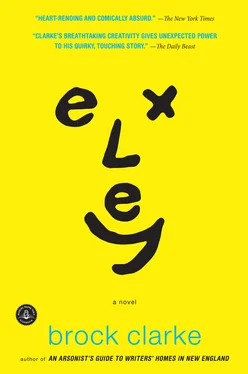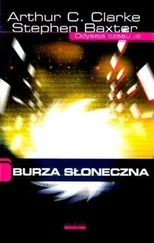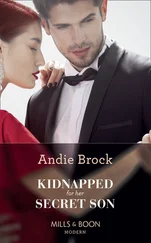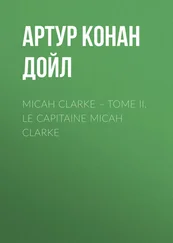“Because that’s the way you’re supposed to say it,” I said. “Besides, it doesn’t matter how many years it’s been. He’s a lot older, that’s what’s important.”
“He looks like he’s dead,” Harold said.
“Well, he’s not,” I said. “Help me get him up.”
After a lot of pulling and grunting, we managed to get Exley propped up against the wall again. All the commotion woke him up, kind of; his head kept snapping back and hitting the wall, and then snapping forward. As it did, his eyes seemed to focus on us for a moment before completing their forward progress and snapping back again. I figured that sooner or later this head snapping would totally wake him up, so I stepped behind Harold so that when it happened, Harold would take the full brunt of Exley’s swearing. Because this was another reason Harold and I were friends: he was the kind of kid who would take the brunt of someone’s something. Harold didn’t do it on purpose, I’m pretty sure. He just couldn’t help getting between you and whatever might give you serious trouble. I watched Exley over Harold’s shoulder, waiting for the moment when Exley would spring to life and let Harold have it and then let me take over afterward.
“What does he like?” Harold finally asked.
“He likes football.”
“To play?” Harold asked dubiously.
“To watch,” I said. “He likes to watch the Giants.”
“They’re called the New York Giants even though they play in New Jersey,” Harold said.
“Good for them,” I said.
“They should be called the New Jersey Giants.”
“Harold,” I said, “can you please just help me bring Exley into the Crystal?”
“I don’t think he wants to go to the Crystal,” Harold said. “I don’t think he wants to go anywhere.” He had a point. Exley’s chin was tucked against his chest now. His eyes were closed, and he was snoring again. He looked content. I could think of only one thing to do. I said, “It’s Sunday!” Before Harold could correct me, I whispered, “He probably doesn’t know it’s not Sunday.” And then to Exley: “C’mon, c’mon, we’re missing the Giants game!” This was what Exley’s brother-in-law said to Exley in A Fan’s Notes after Exley didn’t have a heart attack. “Jesus, yes, ” Exley said back, in the book. But he didn’t say anything outside the Crystal. He kept snoring. And I was out of ideas.
“Don’t worry,” Harold said. He patted me on the shoulder. Harold liked to treat me like a little brother, and sometimes I let him. “I’ll take care of it.” He leaned over and pinched Exley’s nose shut. I knew Harold had learned this from his older brother, who’d practiced this move on Harold himself many a time — in the middle of the night, when Harold had fallen asleep in front of the television, pretty much anytime Harold slept even for a second while his brother was around. But I know Harold never reacted to his brother the way Exley reacted to Harold. Exley’s eyes sprung open and then he punched Harold, right in the mouth. It made that sick, thick sound of knuckle on tooth. Harold staggered back with his hand over his mouth; his eyes went really wide for a second and then he started to whimper. Then my head finally piped up again and said to me, I told you he wasn’t Exley . But I argued back, Exley punched people in his book . Although I didn’t exactly want to argue this, because two of the people whom Exley punched in the book were a black guy and a white guy, because they were walking together, and other people he thought about punching were beautiful women he saw on TV and in the newspaper. I guessed this was why Mother hated his book so much, and I also guessed my head would make me regret my argument. But it didn’t. Yes , my head said, but none of them were kids. Exley wouldn’t hit a kid. Exley wouldn’t hit a Harold . And then I started to whimper a little, too. Because if that wasn’t true, and if Exley was the kind of guy who would hit kids, then I wasn’t sure he was the kind of guy who could also help my dad. And if it was true, and if Exley wasn’t the kind of guy who would hit kids, then this wasn’t Exley.
“Harold, wait,” I said. But Harold wasn’t waiting: he was running away, in the direction of our school. The guy was slumped against the wall again. His body looked like he was asleep or passed out, but his eyes were open and looking at me. His face was about at foot level. I wanted to do something terrible to him. I wanted to kick him in the face and then keep kicking him until my leg got tired. Not just because he’d done what he’d done to Harold, but also because he wouldn’t tell me whether he was Exley. But then I stopped myself from kicking the guy in the face — not because I was scared of him or anything like that, but because I wasn’t sure if my dad would want me to kick the guy, even if the guy had punched Harold. And more than anything else, I wanted to know what my dad wanted me to do, and then do that. So I just decided not to kick the guy in the face and gave him a wide berth as I walked around him and into the Crystal.
Doctor’s Notes (Entry 14)
After “licking my wound” (the wound was literal — the guards gave me quite an ache in my left arch while dumping me on the sidewalk — although, of course, I did not actually attempt to lick it) received at the Veterans Affairs hospital, I am standing on the sidewalk, trying to decide my next course of action, when I see M. hurtling down Washington Street on his bicycle. A few seconds later, I see a boy running in the same direction. I decide to follow, but at a walk, because one never knows when one will run into one’s patient, and because running can appear most undignified if one is a mental health professional. But before I can even make it to our Public Square, I see the boy running back toward me. Running is perhaps the wrong verb; perambulating awkwardly at a speed somewhat faster than a walk while flapping one’s hands like a panicked duck might be more fitting. Odd: the boy is moving forward, but his head appears to be straining in the opposite direction, while at the same time something seems to be struggling to escape from his throat. I can see a tennis-ball-sized and — shaped lump strain at the skin, then withdraw, strain, then withdraw. The boy comes closer and I recognize the lump as perhaps the most enormous — enormous and, indeed, gargantuan — Adam’s apple I have ever witnessed. And when I recognize the Adam’s apple, I recognize the boy, from M.’s description: it is his friend, H.
“Whoa there, young man,” I say, grabbing H.’s elbow as he attempts to pass by. I believe H. to be moving as quickly as his physique would allow, but halting his forward progress is no more difficult than stopping a tissue floating in the breeze. “Are you, by any chance, M.’s friend?”
H. nods. “M.,” he pants, his Adam’s apple bobbing furiously. H. has a fresh cut on his lip; I know it’s fresh because there’s a trickle of blood proceeding from it, down his chin. I make a move to wipe it off, but H. flinches and takes a step back.
“Who are you?” H. asks.
“I’m” — and I nearly introduce myself as M.’s mental health professional. But it occurs to me that perhaps M.’s friends don’t know that M. has an MHP and I don’t want to blow his cover — “Horatio Pahnee,” I finally say. “I’m M.’s friend.” It feels surprisingly good to say that, and I wonder why I’ve always been so hesitant to utter those words about M. or anyone else, until H. reminds me by saying, “I’m M.’s friend and I’ve never even heard of you.”
“I’m a new friend,” I say. “Did I just see M. biking in the direction of our Public Square?”
Читать дальше












